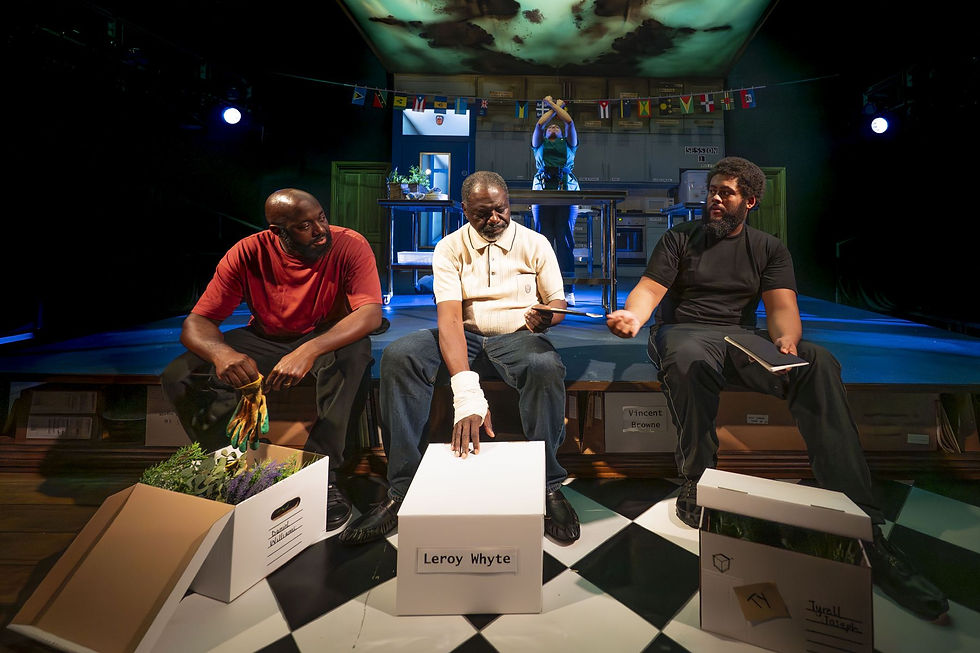Hope behind bars – new writer’s debut shines light on men’s mental health
- Amanda Burden
- Oct 16, 2025
- 2 min read

After Sunday, written by Sophia Griffin, directed by Corey Campbell. At the Belgrade Theatre from 15 -25 October.
Review by Amanda Burden
It’s the hope that gets you, as they say. Hope that things will get better, hope your luck may turn, hope that this is the year your beloved local football team will finally claw its way back to the Premiership (please, please, please, Frank, you can do it). Hope is what keeps us going – but crushes us when it runs out.

Sophia Griffin’s debut play at the Belgrade takes this hope – and examines it under the harsh fluorescent lights of a male medium-security hospital. Examining the lives of three Black patients, Ty, Leeroy and Daniel, this hour-long show confronts mental illness and despair with humanity and compassion.
The trio gather every week for a Caribbean cooking group lead by Naomi (Aimee Powell), a principled staff orderly who fervently believes in the healing power of food. The action is enhanced by an immersive olfactory experience – we smell the plantain frying and the spices of the jerk chicken as the characters talk through what brought them there.

Lifer Leeroy (David Webber) hopes to reignite his relationship with his family, new resident Daniel (Darrel Bailey) hopes to rekindle his relationship with his estranged children, Ty (Corey Weekes) – the youngest of the bunch and potentially the most tragic – hopes for a transfer back to prison. All three give a sharp and resonant portrayal of what it means to be institutionalised, in need of care, and Black in contemporary Britain.
The message is reinforced by the ingenious set – on the surface a sickly green hospital kitchen, with cupboards labelled ‘cutlery’ ‘bowls’ ‘plates’, the upper cabinets hint at the patients’ psychological storage, with doors branded ‘loss’ and ‘rejection’.

The play is powerful, but above all unflinching and unsentimental. This is no tale of redemption but a resolute, warts-and-all look at men’s mental health. We share Leeroy’s confusion, Ty’s anger and Daniel’s optimism, and heartbreakingly, Naomi’s frayed exhaustion as she strives to provide kindness in an unforgiving state clinic which is creaking at the seams.
The dialogue is punctuated with static buzzes as Naomi remonstrates with unnamed unseen bureaucrats, and moments of movement which indicate the inner turmoil of the characters in their desperate struggles in a broken system.
Griffin’s script is punchy and natural, even when tackling difficult issues of race, care and belonging. I’ll be looking forward to her future works. Overall, this play’s message was sharp and enduring, and as lingering as the aroma of the on-stage cooking.
For tickets please go to: https://www.belgrade.co.uk/events/after-sunday/























Comments